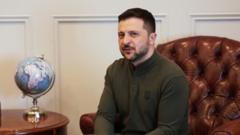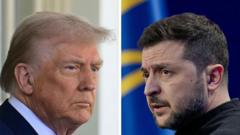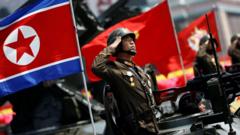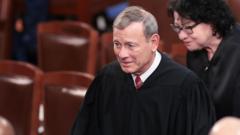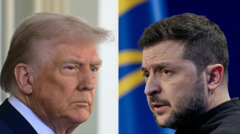**Despite heavy recruitment propaganda, citizens in Tver showcase a blend of normalization and concern regarding the war's impact on their lives.**
**Russians Express Divergent Views on Ukraine Conflict Amidst Recruitment Push**
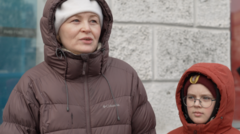
**Russians Express Divergent Views on Ukraine Conflict Amidst Recruitment Push**
**Insights from Tver reveal mixed sentiments toward the ongoing war and America's response**
Driving into Tver, the atmosphere is marked by a strong military presence, evident in the numerous recruitment posters for the ongoing invasion of Ukraine. Billboards and public spaces display images of soldiers accompanied by phrases like "Hero of Russia," urging civilians to rally behind their country and consider enlisting.
Mikhail, a local teacher, reflects a common sentiment, pointing out that life appears unchanged and normal in Tver. "Cars are passing by and all the shops are open," he explains. "We are not panicking. We can't hear any sirens, and life goes on." For many Russians, the invasion remains a distant event, mostly experienced through media.
Conversely, for individuals like Anna, the conflict resonates more deeply. "I know several people who went to fight and never returned," she shares, expressing a hope for the war's swift conclusion. This desire for peace is echoed by many, even as they remain uncertain about international leaders, including Donald Trump, and their potential negotiation strategies.
Trump's recent overtures to Moscow have sparked varied responses. "Trump is a dark horse," Anna remarks, reflecting an air of unpredictability surrounding his position. In Tver, some residents seem aligned with Kremlin narratives about the conflict's justification, a view that is pervasive thanks to state media's portrayal of the war as a defensive endeavor.
Mikhail also suspects Trump lacks a definitive plan to facilitate peace, describing him as an improviser with no clear strategy. "Unfortunately, Trump hasn't got any plan," he states, offering a degree of sympathy for the American leader amidst the chaos.
As the BBC team conducts interviews, they encounter local law enforcement, indicative of Russia's heightened sensitivity toward foreign media coverage. The police inquire about their intentions while a crew from state television appears, probing into their activities. Russian state media operates under a conflicting narrative that promotes the notion of freedom of speech, yet moments like these reveal underlying tensions regarding the portrayal of the war.
The economic ramifications of the protracted conflict are palpable among Tver's residents. Yulia, a local mother, voices her frustrations regarding soaring prices, particularly for essential goods. "Everything is so expensive," she says. "The price of potatoes and onions is really affecting us."
Overall, the sentiments in Tver illustrate a complicated landscape of support for the ongoing military campaign alongside concerns for peace and economic stability, all while wrestling with the indecision emerging from international diplomacy.


